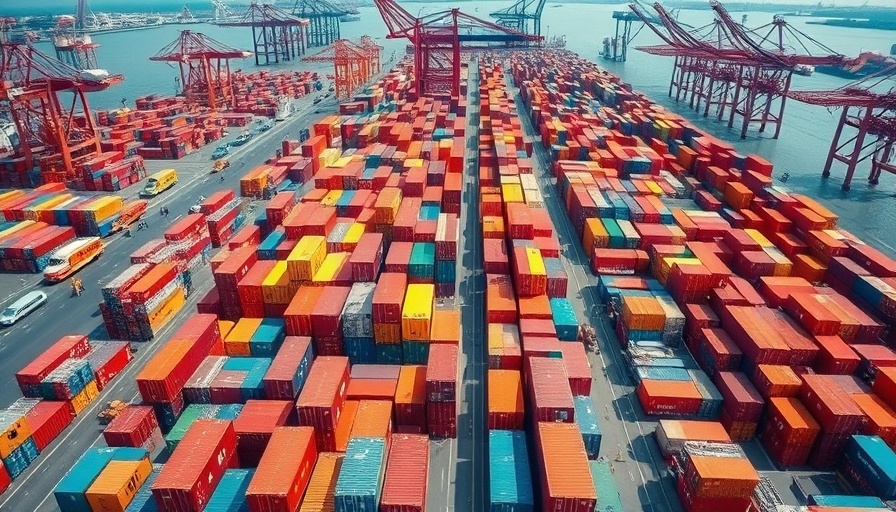
Understanding the Practice of 'Washing' Products
Exporters from China have developed a savvy, albeit controversial strategy to sidestep tariffs imposed during Donald Trump’s administration. This approach, commonly referred to as 'washing' products, involves routing goods through third countries before they reach their final destination, thereby concealing their true origin. The primary objective is to take advantage of less stringent tariffs and maintain competitiveness in a strained global trade environment.
Why is Product 'Washing' Relevant?
This practice has become increasingly relevant as nations grapple with fluctuating trade policies, particularly in the context of the US-China trade war. By exporting through intermediary countries, Chinese companies can present their products as locally sourced or manufactured, thus avoiding steep tariffs that might otherwise cripple their bottom line. Not only does this strategy raise questions about ethical trade practices, but it also highlights the innovative lengths to which exporters will go to ensure their products remain marketable.
Implications for Import-Export Companies
For companies engaged in importing and exporting, understanding the implications of this practice is critical. It challenges conventional notions of transparency in global trade and mandates that businesses remain vigilant regarding the origin of goods. Import-export companies must navigate this complex landscape carefully, balancing compliance with profitable opportunities while staying ahead of evolving trade regulations.
Future Trends in Global Trade Compliance
The 'washing' practice signals a possible shift in how authorities may respond to trade compliance and tariffs globally. As countries intensify their scrutiny of supply chains, businesses may need to adopt more robust tracking and verification systems to ensure their products are sourced ethically and comply with international regulations. This evolving regulatory environment presents both challenges and opportunities for import-export companies to innovate and refine their operations.
Staying Compliant Amidst Changing Regulations
Navigating the waters of international trade requires not only insight but also adaptability. Companies must invest in compliance training and leverage technology—such as blockchain—for better transparency throughout their supply chains. The importance of building strong relationships with trusted suppliers, understanding regional tariffs, and staying updated on global trade policies cannot be overstated.
In conclusion, as the landscape of international trade continues to shift, companies that remain informed and adaptable will be well-positioned to thrive. It's crucial to stay proactive about compliance to harness the benefits of such practices without falling prey to legal repercussions.
For import-export companies looking to bolster their knowledge and adaptability in this complex environment, staying informed about financial insights and regulatory updates will be key to navigating the future of global trade successfully.
 Add Row
Add Row  Add
Add 




Write A Comment